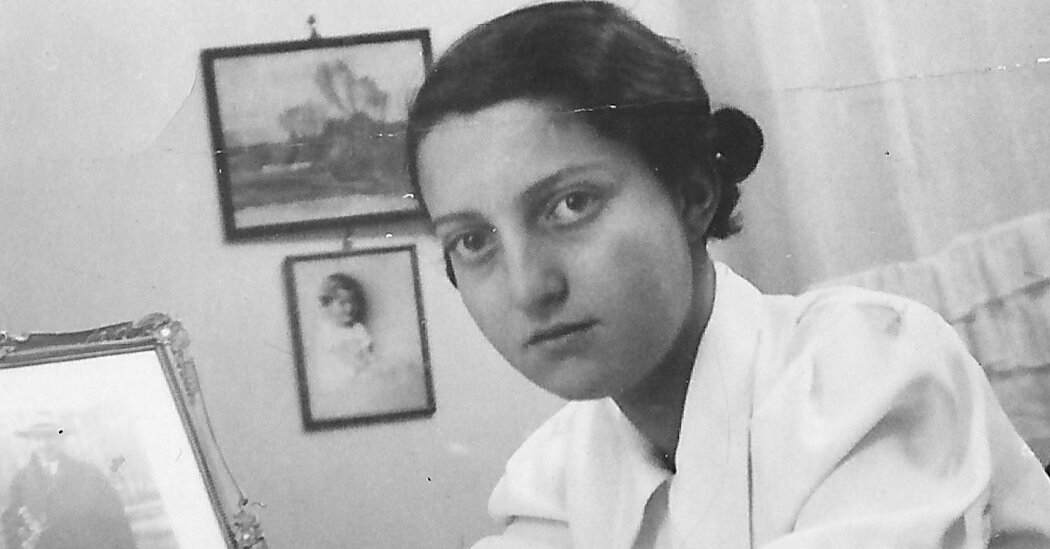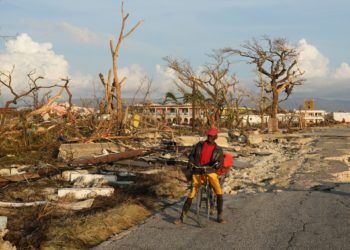This article is part of Overlooked, a series of obituaries about remarkable people whose deaths, beginning in 1851, went unreported in The Times.
When detectives dragged Catherine Senesh into an interrogation room in Nazi-occupied Budapest during World War II, she never imagined who would be waiting for her inside: her daughter, Hannah.
Catherine had believed that Hannah was safe in what was then British-controlled Palestine, more than a thousand miles away, where she was presumably building a new life.
Instead, on that day, June 17, 1944, mother and daughter were reunited in a military prison under the watchful eyes of their captors.
The younger Senesh, a poet, had indeed emigrated to Palestine in 1939 as part of a wave of Jews trying to establish a homeland there. But when news of Nazi atrocities filtered out of Europe, Senesh, unlike most who had escaped the Holocaust, decided to return.
In her diary, she said she yearned to “get Mother out,” even though she was “quite aware how absurd the idea is.”
The idea became a possibility, however, when Senesh learned of an opportunity to volunteer to become a paratrooper with the British Army for the purpose of a secret mission: to parachute into Yugoslavia to help resistance fighters and downed airmen.
She completed her parachute training in Cairo and dropped into Yugoslavia on March 14, 1944. Soon she was rendezvousing with partisan fighters. Days later, German forces occupied Hungary, beginning what would become the most rapid deportation and murder of Jews during the Holocaust.
That was when Senesh chose to risk everything, plunging across the border into Hungary to help Jews stranded there.
“Hannah, on her own, decided to cross, and she crossed alone,” said Peter Hay, who wrote about Senesh (using a different spelling of her name) in his book “Ordinary Heroes: Chana Szenes and the Dream of Zion” (1986).
Her commanding officer, Reuven Dafni, had “begged her” not to go, Hay said. But she was determined.
“It was as if the earth beneath her were on fire,” Dafni wrote in an essay included in “Hannah Senesh: Her Life and Diary, the First Complete Edition” (2004).
Reaching Hungary on June 9, Senesh was soon apprehended by Hungarian gendarmes. She was tortured and beaten before the German Gestapo took her to Budapest.
Even after brutal interrogations, Senesh refused to reveal any details of her secret operation, so her captors tried to use her mother as leverage.
Catherine Senesh had not heard from Hannah in months, and the idea that her daughter would forsake safety abroad to return to Hungary under the Nazis was incomprehensible to her.
But when she saw her daughter, she later wrote in an essay published with Hannah’s diary, “I felt everything — hope, faith, trust, the very meaning of life, everything I had ever believed in — collapse like a child’s house of cards.”
For a time, Catherine and Hannah were imprisoned at the same facility, where they saw each other through opposite windows across a prison yard and communicated by tracing letters in the air with their hands. They managed to meet in person several times — exchanging words in the yard, and at least once sneaking a fleeting hug and kiss — before Catherine was released.
Hannah was not so lucky. She was convicted of treason as Soviet forces advanced on Budapest and executed on Nov. 7, 1944. She was 23.
In subsequent years, Catherine saw to it that her daughter’s voice would still be heard, publishing the poems and diary that Hannah had left behind. As Senesh’s story spread across the new state of Israel, she became a hero there, a symbol of bravery in the face of certain death.
Roberta Grossman, who made a documentary film about Hannah, said in an interview that the mission Hannah undertook by parachuting into Yugoslavia was, “as a practical operation, a dismal failure.”
“But as a morale builder, as a symbol, as a poetic strike against inhumanity, it was very successful,” she added.
The film, called “Blessed Is the Match” (2008), took its title from a poem Hannah wrote shortly after she landed in Yugoslavia, one that has been taught to Israeli schoolchildren. It reads in part:
Blessed is the heart with strength to stop
Its beating for honor’s sake.
Blessed is the match consumed
In kindling flame.
Hannah’s life has since been recounted in literature and onstage. In addition to Peter Hay, in “Ordinary Heroes,” John McCain, the former Arizona senator and presidential candidate, wrote about her in “Why Courage Matters: The Way to a Braver Life” (2004, with Mark Salter, a political speechwriter). A one-woman Off Broadway show, “Hannah Senesh,” starring Jennifer Apple, is now running through Nov. 9 at the National Yiddish Theater Folksbiene in Lower Manhattan. Senesh’s name is commemorated on street signs in Israel, and schools are named after her there and in Brooklyn.
David Senesh, one of her nephews, said her story had helped Israel proclaim its exceptionalism. By sending Jews like Hannah back to Europe to fight, he said, “the Jewish settlement in Palestine did something that no other Jewish country did.”
Hannah Senesh was born on July 17, 1921, into an assimilated Jewish family in Budapest, the daughter of Bela and Catherine (Salzberger) Senesh. Her father was a journalist and playwright who died of a heart attack when Hannah was about 6. She grew up with her older brother, Gyorgy, in a household with servants and traveled to Milan, Venice and Lyon as a teenager.
Her diary revealed her passion for literature and the arts but also her struggles to find meaning in a society that she saw as antisemitic. She had become a fervent Zionist by the time new laws in 1938 severely curtailed rights for Hungarian Jews.
“One needs to feel that one’s life has meaning, that one is needed in this world,” Senesh wrote in her diary on Oct. 27 that year. “Zionism fulfills all this for me.”
She decided to move to Palestine. After graduating from high school in 1939, she departed Hungary shortly after Germany invaded Poland that September, igniting World War II.
In Palestine, she studied farming at the Nahalal Agricultural School for Girls and dedicated herself to labor at Kibbutz Sdot Yam, on the Mediterranean coast near the town of Caesarea. But she struggled with loneliness.
“I live here like a drop of oil on water: sometimes afloat, sometimes submerged, but always remaining apart, never mixing with another drop,” she wrote in her diary on Jan. 8, 1943.
Joining the British Army renewed her sense of purpose.
After her capture, she was defiant, upbraiding the judge at her trial by warning that those who supported the Nazi regime, which by late 1944 seemed bound to fall, would face a reckoning.
“Her behavior before members of the Gestapo and SS was quite remarkable,” Yoel Palgi, a fellow paratrooper, wrote in an essay included with her diary. “She always stood up to them, warning them plainly of the bitter fate they would suffer after their defeat.”
In 1950, Senesh’s remains were taken to Israel and buried with military honors in a cemetery on Mount Herzl in Jerusalem as a large crowd, including her mother, watched.
Senesh’s bravery has inspired generations of Israelis, including her nephew David. He was taken prisoner in 1973 while serving in the Israel Defense Forces after Egypt and Syria launched a surprise attack, starting the Yom Kippur War.
As his captors tortured him, “I was conversing with her,” he said, “and with her poems and writings.”
For all her outward resolve, Senesh’s last-known poem admits to the despair she felt while imprisoned.
Titled “One-Two-Three,” for the paces she made in her cell, it ends: “I gambled on what mattered most, the dice were cast. I lost.”
Daniel E. Slotnik proofreads Times articles to help ensure quality. He also writes, primarily for the Obituaries section.
The post Overlooked No More: Hannah Senesh, Poet and Paratrooper Who Defied the Nazis appeared first on New York Times.




